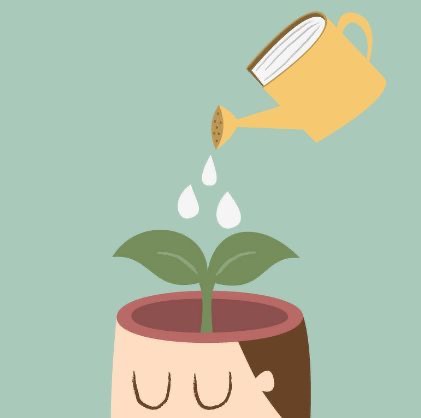I come across lots of people who technically make fun of me whenever the sentence “I like to journal” slips my mouth, and I never truly understood the reason behind this unanimous aversion towards journaling. Then I soon discovered that it’s not a viewpoint secluded to the handful of people that I know and interact with on the daily, but rather shared by thousands and even millions of people. For this reason, I felt inspired to share my viewpoints on why journaling can be such a great addition to your routine and, hopefully, become an indispensable part of it.
1. It heightens your self-awareness.
Let’s face it: you’re not aware of what you are doing or how you are feeling almost 90% of the time. You are constantly going on social media, endlessly scrolling like you’re anticipating something worthy of your knowledge or concern to pop up. You are running on autopilot, going about your monotonous life without realizing that you’re actually stuck in a rut and you need to do something about it. And worse, you lose your wits at the most insignificant and petty inconveniences. You simply lash out, unable to communicate exactly what it is that excites your anger.
We have become unable to articulate our emotions, and have become severely defected in the way of persuasion. We are no longer capable of employing reason and logic into why certain things happened in certain ways, or ways in which we can solve the riddles that life throws at us every day.
Journaling makes way for self-discovery. It allows us to pinpoint our own specific triggers, our own sources of motivation, our strengths and limitations. Journaling is an invitation to literally put our emotions into words, which not only cultivates better enunciation skills, but also keeps our often unruly whirlpool of emotions at bay. Simply writing down the things that make you happy, sad, angry, depressed takes a huge load off of your chest, which increases your likelihood of remaining composed and collected at times of future vexations. Journaling is all about getting to know who you are, communicating with your true, authentic self, and finding ways in which you could become a better person to yourself and to those around you.

2. It encourages self-growth.
I once came up to my sister, whose cheeks were blotched, her eyes were swollen and red, and her nose was runny at the time. She would not speak to me about what got her into this state, so I recommended that she started journaling lest her agonies subside, but she flat out refused, and it led me to contemplate how we are all sometimes frightened out of our wits to face out emotions, to look at our pains directly before us.
We often don’t realize how absolutely important it is for us to dig deeper into our “long-neglected” insecurities and pains if we intend to grow as people. Most people would say that they’re scared they would plunge into depression and never get out, or that it is of no use to revisit an archive of memories that’s hidden under layers of newer ones. But that brings me back to the point of lack of self-awareness and how letting go without garnering the lessons of the past might sound like the easiest and most sound option. Without opening old wounds, your past will continue to manifest itself in your mental and physical reality, whether it be through your belief system, your assumptions, or your behavior.
There is just no way around pain. The only way “around it” is “through it”. And that’s where journaling comes in handy. Without keeping track of the thoughts that run through our minds, and without having them in order before us, our minds will likely take highly irrelevant routes in the way it will arrive at conclusions. For example, if someone wronged me in the past and I have no journal to break the situation up into its smallest details, I’ll likely deem this person heartless, cruel, and just bad news all over. However, with the inherently calming and thought-aligning effects of journaling, my verdict of the person is not going to be so bigoted and malignant, and I’ll be able to get over the past without harboring any grudges or necessarily hating myself for the way things didn’t work out well for me most of the time.

3. It enhances creativity.
Who said that journaling is for the sole purpose of turning your life into a chronicle? Your journal is essentially an impersonation of your mind, and your mind is obviously not entirely preoccupied with life events. Journaling can be composing poetry, doodling, and even scribbling. It does not have to be organized all the time, and you do not have to stick to a certain pen color or hand writing all throughout. You are not bound by a specific aesthetic code, and your journal is not meant to impress anyone but yourself.
Harness journaling for mind exploration. Come up with unconventional and even existential ideas and expound on them. See where your mind takes you. It’s proven by science that journaling really gets your creative juices flowing, so why not dedicate 30 mins of your day into doing this little brain exercise? It will serve as a complementary instrument for bettering your school grades of thinking up better ideas for your business or whatever it is that you’re concerned with outside of journaling.
4. It serves as an excellent punching bag 🙂
Instead of all the drama that ensues from thoughtless fits of rage, and instead of making a fool of yourself, opt in journaling. When you’re blood is simmering and you can literally feel like you’re right up to your throat, there is nothing more tempting than to sail in the direction of your pesterer. Oh, the complacency of hurting others, right? Wrong!
When we’re angry, we’re out of alignment with own mental being. We let the emotional body lead the way, and the emotional body does not know anything about order, or mannerisms, of ethics. But, with continual journaling, not only will you let off some steam without suffering any losses, but you will also train your mind to evaluate future annoyances from a third person’s perspective, which will eventually manifest itself in the way you remain dignified and solemn despite yourself.
Start journaling, and you will start witnessing major improvements in the overall quality of your life. Think of journaling as if it is a more “movement-involved” version of meditation. Journaling with drastically shift your perspective about how you should approach yourself and others, and will guarantee that you stay grounded and in synchrony with yourself.

